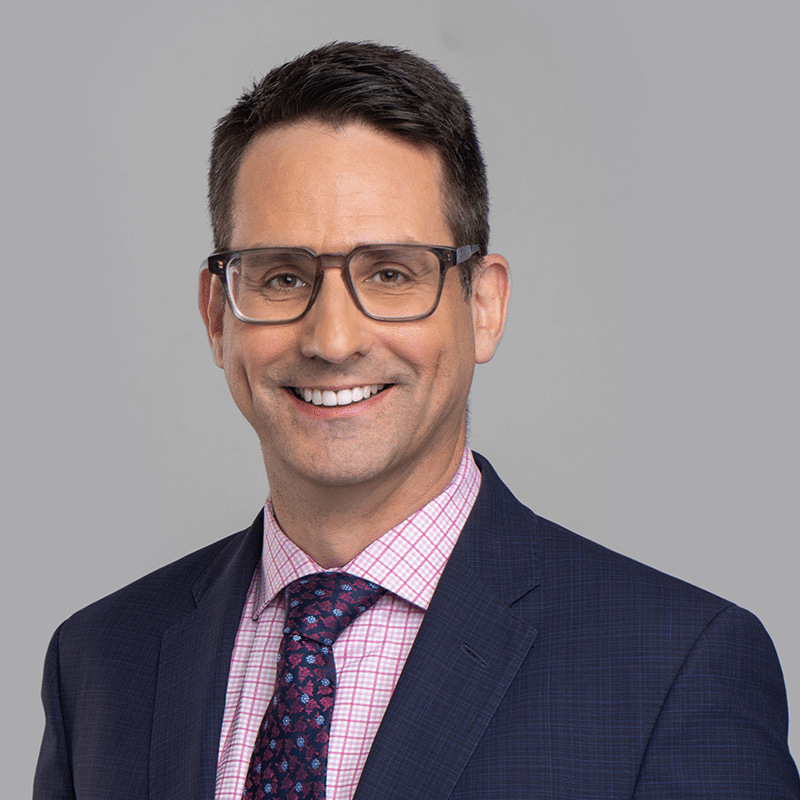
It’s been a rough few years for experts.
Populist sentiment is rising. Faith in many institutions is teetering. And an increasing number of people seem to be willing to accept anecdotal evidence, folk theory and appeals to “common sense” rather than to put stock in scientific data that may not match their worldview. Worryingly, propagandists have also discovered that social media space is primed to turn an uninformed person into a misinformed person.
We need people with expertise. In a complex world, everyone can’t know everything. We should be able to rely on experts who specialize in certain fields and hone particular skills and accept their well-informed opinions as credible sources.
But, when an expert acts in a way that impugns their credibility, it not only devalues their opinions, it also compromises our willingness to trust other experts.
This blog post hones in on a recent judicial decision that prevented an “expert witness” for the defence from testifying and giving evidence in a personal injury case. The judge in this case agreed with the plaintiff’s lawyers that a potential expert witness was willing and wanting to offer opinions outside his area of expertise, and that he crossed the line between expertise and advocacy.
This ruling and other recent judicial commentary on the matter indicates there is a growing appetite among trial courts to exercise their gate-keeping function more robustly. This case is one of several recent examples of Ontario trial judges exercising their gatekeeper function to ensure opinion witnesses are there to assist the trier of fact and not to simply advocate for one party or another.
Moustakis v. Agbuya, 2023 ONSC 6012
On January 9, 2016, Kyriaki (“Cindy”) Moustakis was injured in a motor vehicle accident. She sought damages for injuries including soft tissue injuries, chronic pain, and psychological injuries. The defendant admitted liability for the accident. The parties agreed that the questions for the jury concerned general damages, past income loss and future income loss or loss of earning capacity. The case was tried before a jury over 12 days.
During the trial, the defendant tendered a litigation expert, Dr. Ford, who provided reports and a signed Form 53, acknowledgement of expert’s duty. The judge was asked to rule on the admissibility of his evidence at the qualification stage. Specifically the plaintiff alleged that Dr. Ford was biased and incapable of offering opinion evidence consistent with his obligations in the signed form 53.
The defence seeks to qualify Dr. Ford as an expert
Dr. Michael Ford, an orthopaedic trauma surgeon at Sunnybrook Hospital, was retained by the defence to provide an expert opinion on the plaintiff’s injuries. During the voir dire (a preliminary examination of the witness by counsel without the jury present), defence counsel asked Dr. Ford about his experience with chronic pain and chronic pain syndrome.
Dr. Ford stated that chronic pain is not a specific diagnosis, but rather a label for pain lasting longer than six weeks – something he said all of his elective patients experience because they must wait months or sometimes years before surgery. Dr. Ford explained that chronic pain syndrome, on the other hand, is “a psychiatric label that was developed in the late eighties to describe those individuals who have an altered behavioural response to chronic pain.”
Dr. Ford volunteered that “the vast majority of these people are claimants. We very rarely see, if ever, people with chronic pain syndrome who are not involved in some sort of litigation process.”
In answering a series of questions posed by defence counsel, Dr. Ford noted that he was not intending to give a psychiatric diagnosis, but rather his interest in the phenomenon was from an orthopedic perspective.
When asked if he was familiar with the diagnostic criteria for chronic pain, Dr. Ford answered he was, referring to the seven or eight “Ds.” He listed duration, drug use, dysfunction, before stating “and I’ve forgotten some of the other ones…”
Finally, the defence counsel asked whether it’s fair to say there is an overlap between chronic pain syndrome with respect to psychiatric specialities and his own orthopedic specialties. Dr. Ford stated that when treating a patient, it would be inappropriate to separate a patient’s psychiatric condition from their orthopedic condition if the psychiatric condition could have an influence on their physical condition. “I have to be a doctor first and an orthopedic surgeon second.”
The plaintiff counsel examines Dr. Ford
Cross examination during the voir dire began with questions about whether Dr. Ford understood the medical reports he wrote following his examination of the plaintiff were for litigation purposes. Dr. Ford answered in the affirmative and stated that he understood their importance, he takes report writing seriously and he is typically very careful in his wording in these reports.
Counsel noted in his first report that he wrote that he was familiar with somatic symptom disorder “as the diagnosis of this condition has significant ramifications with respect to prognosis after any surgical procedure.” He further agreed that he would defer to a psychiatrist in making that diagnosis, and added that he would want to be apprised of such a diagnosis as it would factor into his own assessment and recommendations for potential treatment.
Nevertheless, Dr. Ford wrote in one of his reports that the plaintiff’s complaints of chronic pain symptoms “cannot be explained on any other basis than a psychiatric conversion disorder” – when in fact, none of the psychiatrist litigation experts nor Cindy’s long-time treating psychiatrist had ever made a diagnosis of conversion disorder. Dr. Ford then wrote: “I will leave this diagnosis up to the psychiatrists and psychologists,” before adding “I’m not too sure how this would be done.”
Critically, Dr. Ford admitted that he was unsure if a journal Risk and Insurance was a peer reviewed publication. Nonetheless he quoted an article from that journal in his reports.
Defence re-examination of Dr. Ford
In his re-examination, Dr. Ford reiterated that he would leave diagnosis of a possible psychiatric conversion disorder to a qualified psychiatrist. When asked what “diagnosis of exclusion” meant, Dr. Ford explained that certain conditions cannot be diagnosed specifically without excluding other conditions.
In particular, Dr. Ford used “malingered related pain disorder,” as an example of a condition that would be difficult to exclude because there are no objective parameters. Dr. Ford noted that “the American Psychiatric Association has clearly stated that [chronic pain syndrome] hasn’t been validated for forensic situations. It was developed for clinical, educational and research purposes, but in the absence of any validation, it shouldn’t be used for forensic situations because again, it can’t be used until you rule out malingered related pain disorder and that’s very difficult to do.”
Arguments over whether to qualify Dr. Ford
The plaintiff’s position was that there was evidence of bias and Dr. Ford should not be permitted to testify before the jury. Despite understanding the purpose and parameters of the voir dire, Dr. Ford could not help but spend half of his re-examination talking about malingered pain disordered as an advocate, an area that is clearly outside of his area of expertise.
Plaintiff’s counsel argued that Dr. Ford’s reports and his examination in the voir dire showed “a willingness to go well beyond the scope of his expertise.” In particular, plaintiff’s counsel drew the court’s attention to several examples in Dr. Ford’s reports which appeared to diagnosis psychiatric conditions in explaining the plaintiff’s chronic pain.
In one report, for example, Dr. Ford wrote: “The science has clearly shown that persistence symptomology after a minor traumatic event associated with compensation litigation issues is pyscho-socioeconomic and not organically based. Expanding symptomology is not uncommon amongst litigants.”
Further, Dr. Ford referenced an article in the journal of Risk and Insurance that refers to expanding symptomology as it relates to insurance fraud. Plaintiff’s counsel called the inference “a gratuitous attempt to harm the plaintiff’s case.”
Plaintiff’s counsel contended that Dr. Ford’s willingness to wander outside his expertise in both his report and voir dire testimony should be concerning for the court and be taken as evidence that he would be a problematic witness. Plaintiff’s counsel argued that Dr. Ford’s references to a non-organic source for Cindy’s chronic pain was an attempt to diagnosis malingering without coming out an saying it:
“goes to an attempt to smear Cindy with no direct evidence about Cindy, just a wide ranging romp through the library for any article that mentioned fraud or malingering or recovery in an attempt — again, as in Bruff-Murphy to take every opportunity to hurt the plaintiff’s case and to not really act in anyway as an unbiased Expert.”
Plaintiff’s counsel made it clear that no instruction from the court would be able to contain Dr. Ford to giving appropriate evidence or limit his evidence to what is proper – Dr. Ford simply saw himself as partisan. Further, plaintiff’s counsel argued that allowing Dr. Ford’s testimony in front of a jury where he would reference journal articles that mention insurance fraud and malingering, which do not apply to the plaintiff, would be improper.
The defence response
Defence counsel began highlighting portions of reports by the plaintiff’s treating psychiatrist, who was qualified as a psychiatric expert, and noted that the plaintiff discussed what compensation for her injuries would mean for her future and the impact of the ongoing litigation on her, including her treatment. Defence counsel explained that Dr. Ford had access to these reports and that they explain why Dr. Ford was referring to journal articles which mentioned compensation as a disincentive for getting better.
Justice Merritt noted these articles also spoke about malingering symptoms and insurance fraud, and asked whether this would be part of Dr. Ford’s testimony. Defence counsel answered this was absolutely not the intention; rather, Dr. Ford would testify that there is no organic reason for the pain and use his clinical experience, secondary literature, and references to the psychiatric expert’s testimony to note the variety of non-organic factors that could be the cause of the plaintiff’s complaints.
Defence counsel explained that, if the issue is how to present Dr. Ford to the court (and jury), then she made an unintentional error in phrasing. Rather than presenting Dr. Ford as a medical expert in “diagnosing” patients with chronic pain syndrome, she intended to introduce him as an orthopedic doctor who “sees patients who have already been diagnosed with it and has opinions related to that.”
The decision to exclude Dr. Ford as an expert witness
In her decision, Justice Merritt said the starting point for the qualification of expert witnesses when considering the admissibility of expert evidence is the Mohan test of relevance, necessity, absence of an exclusionary role, and a properly qualified expert. The Court noted that in this case there is no exclusionary rule: the Court had concerns about the remaining three branches of the test.
A judge must perform a cost-benefit analysis to determine if otherwise admissible expert evidence should be excluded because its probative value is outweighed by its prejudicial effect. This gatekeeper inquiry involves balancing the risk and benefits of admitting the evidence or balancing the relevance, reliability and necessity against the consumption of time prejudice and confusion.
Justice Merritt explained that once an expert attests or testified to recognizing the duty to provide impartial evidence (under Rule 53.03 of the Rules of Civil Procedure), the burden shifts to the party seeking to exclude the expert evidence. She stated it is rare to exclude expert evidence..
The Court noted that Dr. Ford’s experience with chronic pain syndrome relates to decisions of whether to do surgery and potential post-surgical outcomes, but that there was no issue of surgery in Cindy’s case. Furthermore, the doctor had referred to a journal article from the Journal of Insurance and Risk but was unable to say if that journal was peer reviewed.
Her Honour found that Dr. Ford has gone outside of his own expertise in his reports and the cost of admitting his evidence outweighed its probative value. Specifically, Justice Merritt stressed that there is a risk a jury will defer to an expert’s opinion rather than carefully weigh it.
In her decision, as the Court noted that the doctor had strayed beyond his expertise and engaged in inappropriate advocacy. She concluded: “As in the Bruff-Murphy case, the whole tone of the report is a reliable predictor of Dr. Ford’s testimony. He goes out of his way to make points that are clearly meant to challenge Cindy’s credibility. He goes beyond a mere lack of independence and appears to have adopted the role of advocate for the defence.”
On the court’s gatekeeping role and the ramifications of this decision
Expert witnesses serve to help non-experts understand complex, specialized matters within their area of expertise. In spite of a climate that appears to be challenging, properly constrained opinion evidence remains crucial to the proper functioning of our system of justice. There are many areas where ordinary common sense or intuition would lead a jury astray without the benefit of expert evidence and experience to help explain highly specialized medical or engineering evidence. The need for good expert evidence only reinforces the need for the Court to be vigorous in its gate keeper function to ensure that the opinion evidence is helpful to the jury and assists the system to get to a fair result.
This court’s decision to decline to qualify an expert witness might be seen as a rebuke to someone who is clearly an expert in some respects (orthopedic surgery). However, in a larger sense, it is a necessary action to protect the court as an impartial institution that facilitates justice. By exercising its gate-keeping function, this court has sought to preserve the role of expert witnesses as opposed to accepting entrants whose testimony could prejudice proceedings.
It’s common knowledge within legal circles that certain experts are retained more often or almost exclusively by counsel for one side or the other. One expert’s assessment or opinion may better fit the argument a party wants to make compared to another. Ultimately, however, it is up to counsel to make these arguments and advocate on behalf of their clients – it is not the expert’s role.
By refusing to qualify a potential witness who has performed hundreds of medico-legal assessments in his career, this court has sent a clear message to all counsel: expert witnesses must serve the court, not one of the parties to an action. Counsel must carefully assess and vet their experts to ensure they understand their duty. If the experts do not understand their duty, counsel will risk losing a potential witness and possibly compromising their own case.







